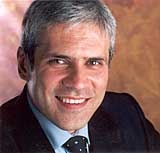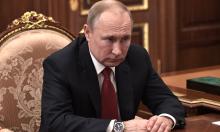Serbia: President asks NATO to increase protection for the Serbs in Kosovo

In a telephone conversation with NATO's Jaap de Hoop Scheffer, Tadic said there was a "grave security situation in the province," where some 17,000 NATO troops have been deployed as peacekeepers since 1999, Tadic's office said.
De Hoop Scheffer visited Kosovo on Thursday and urged local Serbs and ethnic Albanians to reach a compromise over the province's future at ongoing U.N.-brokered talks.
Kosovo is formally part of Serbia, but has been run by the United Nations and NATO since a 1999 war. Majority ethnic Albanians want Kosovo to become independent, but the Serbs want to keep it part of Serbia.
There are about 100,000 Serbs in Kosovo, living in isolated enclaves guarded by NATO. More than 200,000 fled after the 1999 war, fearing attacks by the ethnic Albanian extremists, who were angry over a previous Serb crackdown on the Kosovo separatists.
The Serbian officials and media have reported that extremists' attacks on Serbs have increased in the past several weeks.
In the latest reported attack, a U.N. bus carrying Serbs was stoned in central Kosovo on Friday morning, Belgrade-based Serbian television said. No injuries were reported, but several windows on the bus were broken.
Tadic said that security for the Serbs in Kosovo was "a key factor" for their survival in the province, the statement from his office said.
The Serbian president also expressed "grave concern" over the situation, and urged NATO to "boost security in Kosovo and thus provide for the protection of the people, their homes, churches and monasteries."
Subscribe to Pravda.Ru Telegram channel, Facebook, RSS!



